Pakistan launches unprecedented paramilitary raid on offices of political party leaving one dead and three wounded
An MQM MP has described the attack on his party's HQ as an 'unjustified use of power' to protect the country's feudal system
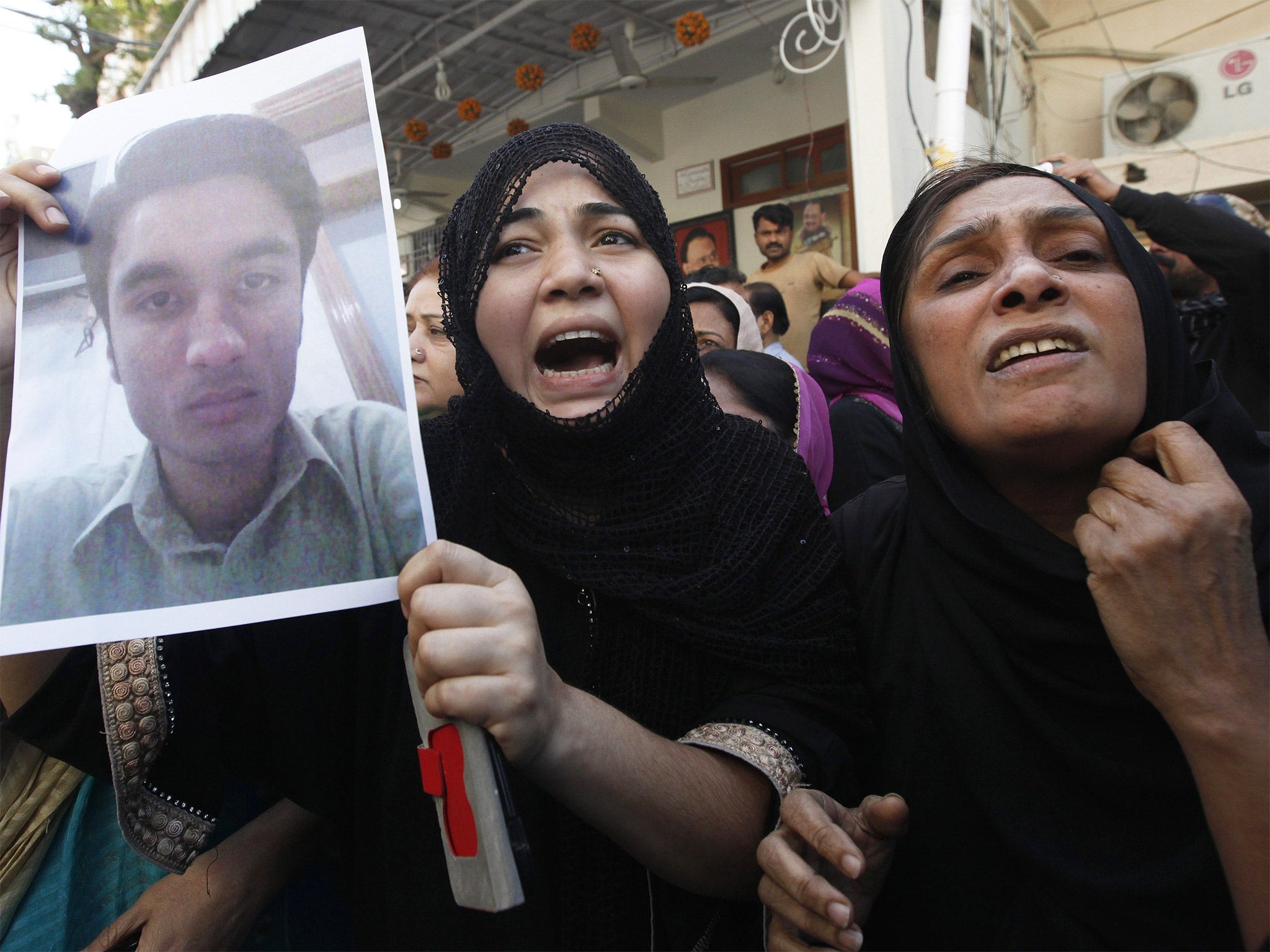
Pakistan staged an unprecedented paramilitary raid on the headquarters of one of the country’s most powerful political parties today, seizing a cache of weapons and arresting some of its members.
Shortly after 4am, masked members of Pakistan’s Rangers force entered the offices of the Muttahida Qaumi Movement (MQM), a controversial party known for its secular politics but also reputed for violence, in the Karachi neighbourhood of Azizabad. The area is known as Nine-Zero after the house where the party’s leader Altaf Hussain, now in self-imposed exile in Britain, once lived.
The MQM said three of its members were shot and wounded during the dawn raid and a fourth, a press officer, was killed. The normally bustling city came to a halt as shops and schools closed amid fears of a backlash from supporters of the party, which has huge popular backing in Karachi.
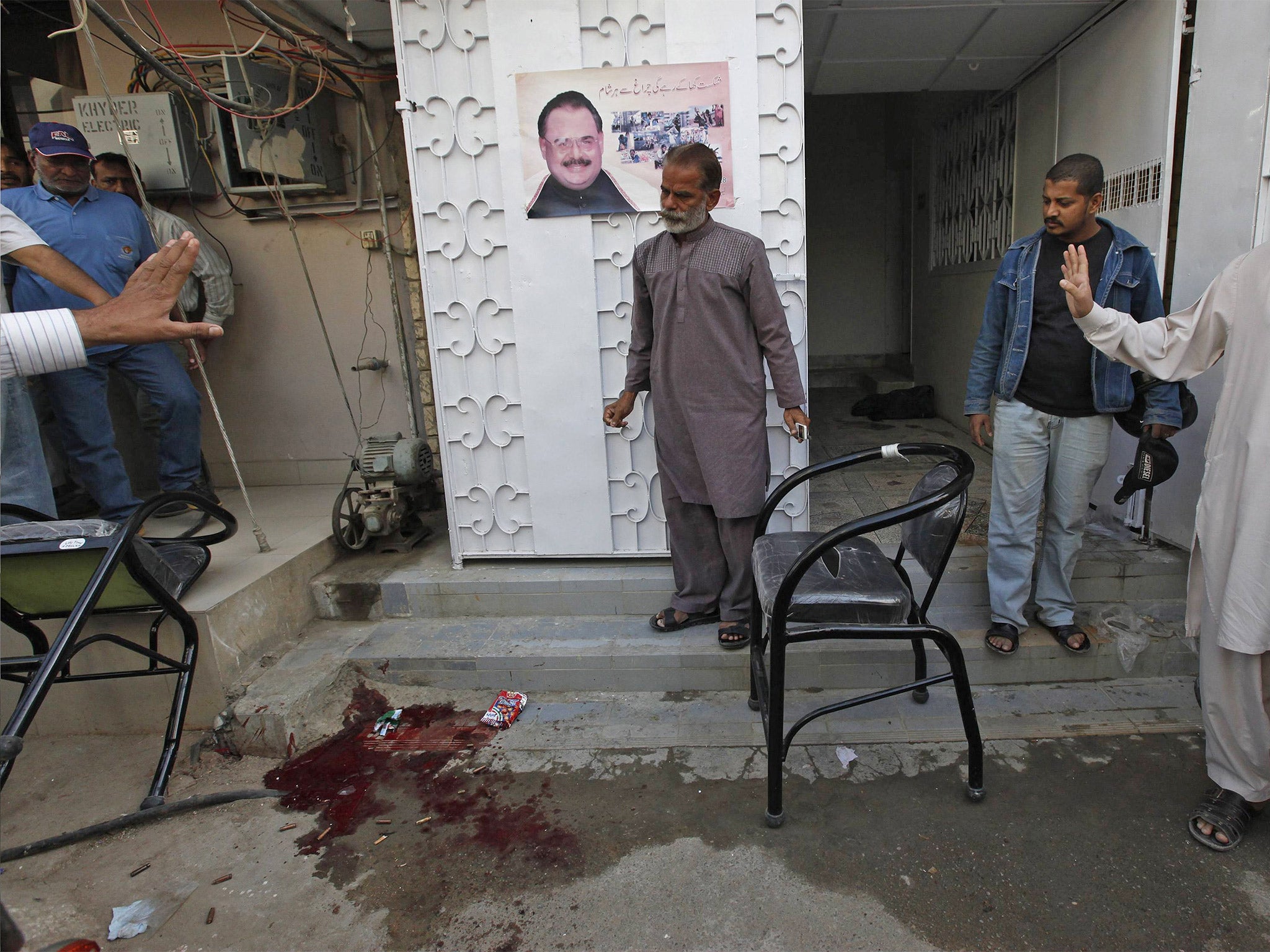
In a fiercely disputed account of the raid, the Rangers said they arrested 20 members, including six wanted “terrorists”. The MQM claims that the number arrested was larger, but did not deny the presence of the wanted men.
Col Tahir Mahmood, a Rangers spokesman, said the captured weapons could not have been legally imported into Pakistan and may have been acquired through a raid on Nato supplies that are taken by truck from Karachi’s port to Afghanistan. Faisal Subzwari, a senior member of the MQM, said the weapons were licensed. “We have our own security system, thanks to threats from the Taliban and other groups who threaten us,” he told The Independent.
Saman Jafri, a member of the Pakistani parliament for MQM, who witnessed the incident, said “paramilitary forces” arrived in the early hours in what she described as an “illegal raid”. They reportedly seized computers and disconnected telephone lines, before shooting 24-year-old Waqas Ali Shah as they withdrew. “He was shot as they fired their rifles on a crowd of peaceful protesters. This was a wholly unjustified use of power by the establishment to protect Pakistan’s feudal system and to consolidate its grip on power,” she said.
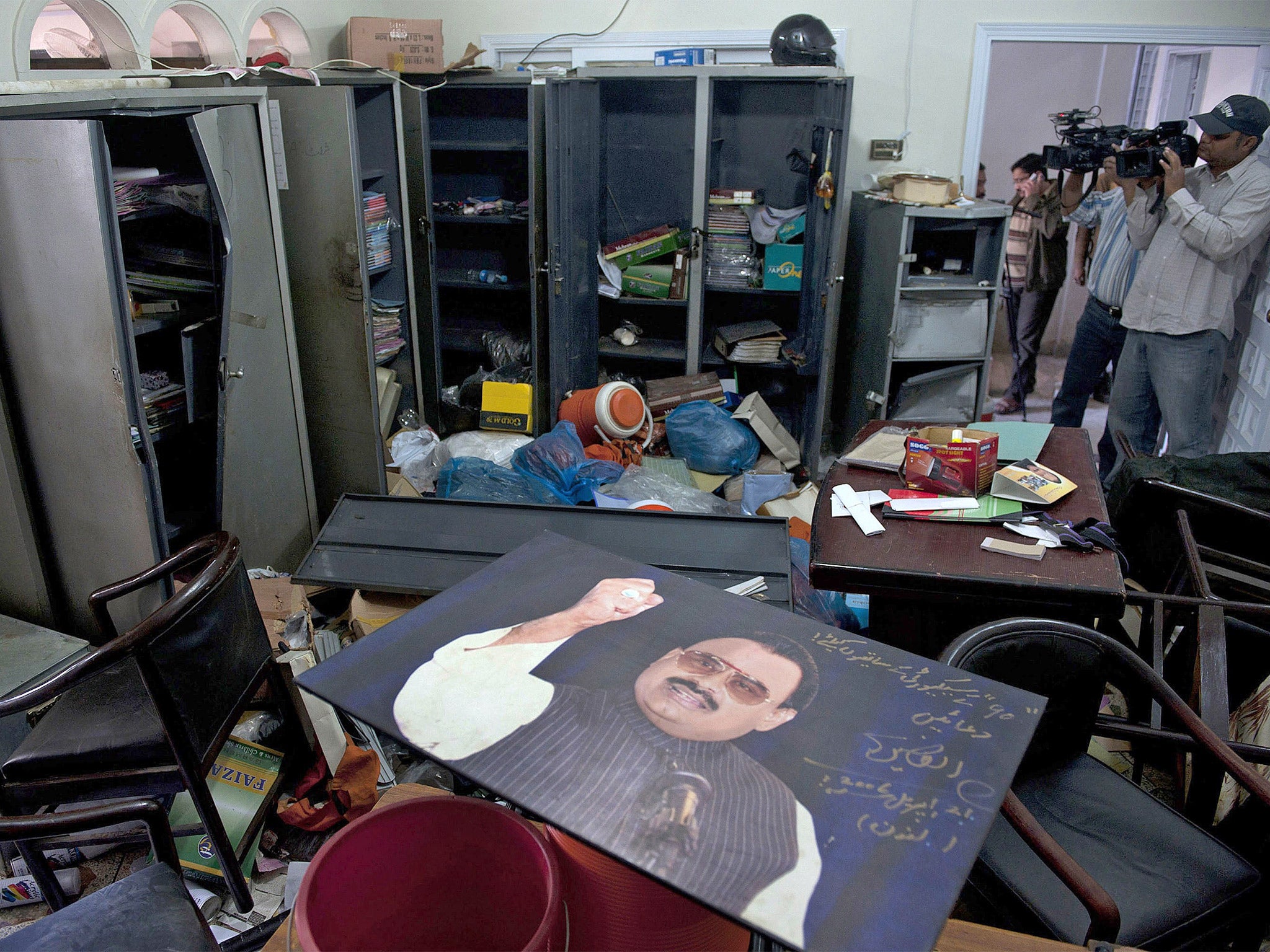
Karachi has a fearsome reputation for violence, with the Taliban and other Islamist militant groups entrenched there. Pakistan’s Supreme Court has also said that the city’s main political parties all maintain armed militant wings of their own.
The MQM and groups from the Pakistan People’s Party (PPP) and the Pashtun national Awami National Party have all been widely accused of crimes including drive-by shootings and racketeering.
The MQM, which was at the centre of Pakistani politics and ran key government ministries in Islamabad for several years, has been pushed to the margins since the 2013 elections, in which the Pakistan Tehreek-i-Insaf defeated it in several districts. There had been growing speculation that Islamabad authorities wished to take action against it.
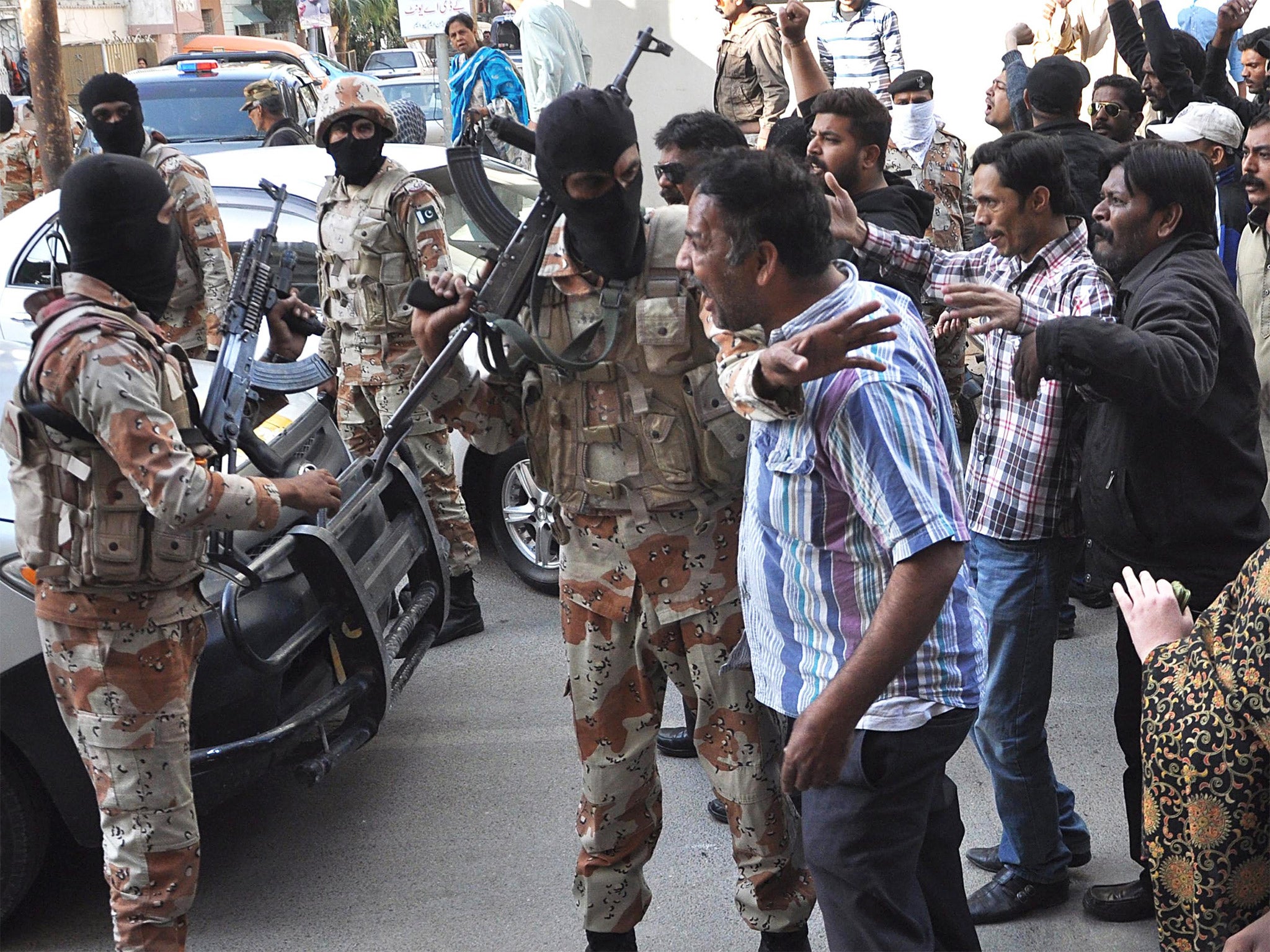
In London Mr Hussain addressed supporters in Karachi by telephone, he said: “I was shocked to hear this news. In a democratic country it should not be the role of the Armed Forces to conduct extrajudicial operations on lawful organisations, least of all the headquarters of a democratically elected political party.
“I appeal to my workers and supporters to remain calm; I believe that time will show this to be a wholly unjustified abuse of power on the part of the establishment.”
Mr Hussain, who has lived in the UK since 1992, saying his life is in danger in Pakistan, is currently on bail after being arrested on suspicion of money laundering in June last year along with two other men. A fourth man was arrested on 12 January by Metropolitan Police officers as part of a broad inquiry believed to relate to a quantity of money recovered during a raid on Mr Hussain’s home in north-west London. All the men are suspected to be linked to the MQM party.
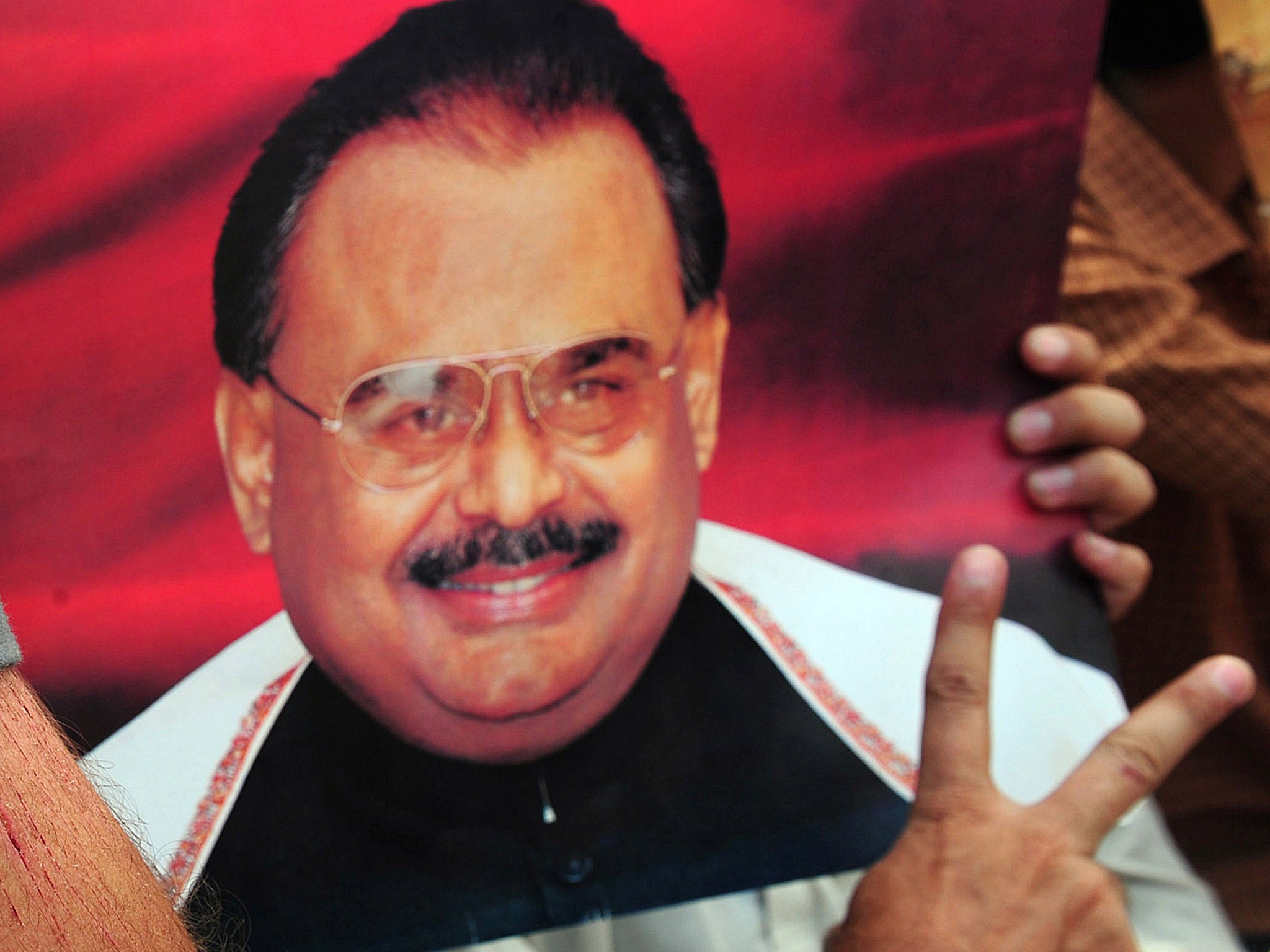
The inquiry is just one of several past and continuing police investigations into Mr Hussain, his political allies and members of his family. He regularly addresses large rallies in Karachi by conference telephone connected to loudspeakers and in May 2013 was investigated by police after “thousands” of complaints that his televised speeches were inciting violence in Pakistan. In October the CPS decided there had been no criminal offence.
However, the most high-profile police investigation followed the 2010 murder of senior MQM leader Dr Imran Farooq, who was stabbed to death outside his house in Edgware, London.
Scotland Yard is thought be investigating whether the murder was linked to Dr Farooq’s plan to break away from the MQM and launch his own political career. In June police arrested two men on suspicion of the murder, including Mr Hussain’s nephew Iftikhar Hussain, who was later released without charge. The other unnamed man is still on police bail.
A police source told The Independent that the case was still “wide open and on-going” and that officers from the Met’s Counter Terrorism Command were working with authorities in Pakistan to continue to hunt for two men who left the UK on the night Dr Farooq was stabbed.
Officers believe Moshin Ali Syed and Kashif Khan Kamran, both in their early-to-mid thirties, entered Britain on student visas on 16 September 2010 before leaving on the night he was killed.
Join our commenting forum
Join thought-provoking conversations, follow other Independent readers and see their replies
Comments
Bookmark popover
Removed from bookmarks